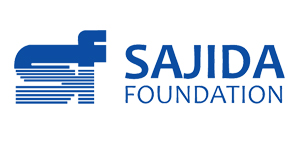SAJIDA Foundation is a non-profit organization established in 1993 with a focus on upholding values of equity and serving marginalized and disadvantaged communities through its comprehensive development programmes, such as microfinance, health services, urban poverty alleviation, and climate change.
University of Liberal Arts Bangladesh (ULAB) is a private liberal arts-based University in Dhanmondi, Dhaka, Bangladesh. Founded in February 2002, ULAB incorporates the values of Liberal Arts and Sustainability into its curricula, through its General Education Department and its Center for Sustainable Development.
The Center for Sustainable Development (CSD) was established in 2006 and is the oldest research Center at the University of Liberal Arts Bangladesh. CSD is the only research institute in Bangladesh dedicated solely to the Sustainable Development dilemma: how can human development needs of all people be realized in a world of finite resources facing enormous environmental challenges, from the collapse of biodiversity to climate change? CSD conducts interdisciplinary research with local and international partners to address the complexities of natural and anthropogenic changes and to integrate sustainability in both policy and practice.

Sundarbans Jana Shramajibi Manch (SJSM) is a pioneering NGO that has been working since 2006 on the implementation of the Forest Rights Act 2006. Collaborating with like-minded NGOs across the country, SJSM aims to secure the rights and improve the livelihoods of the forest-dependent communities in the Sundarbans region.
SJSM was formed as the people’s movement organization in 2013 to upscale implementation provisions of the Forest Rights Act 2006, India through the establishment of Gram Sabhas in the south-eastern blocks of Sundarbans (Gosaba, Kultali, Joynagar, Basanti and Hingalgunj), West Bengal. SJSM works on forest rights, alternative livelihoods, women empowerment, health and education of children, etc. Currently, there are more than 50,000 forest-dependent fishers who are members of the organization.
The Indian Institute of Technology (IIT) located in Kharagpur has been ranked 57th globally among higher education institutes for its research in areas related to the UN’s sustainable development goals (SDGs).
The Indian Institute of Technology Kharagpur, established in 1951 has gained global acclaim for imparting world-class education, research, and innovation. It has several departments, schools and centres, offering bachelors, masters and PhD courses to more than 14000 students from India and abroad. The institute is eminent in recognizing the value of cultural heritage and traditional knowledge systems, providing platforms to cutting-edge research and outreach activities in this domain and related areas.
The University of Lausanne, established in 1537, is a higher teaching and research institution composed of seven faculties. The University of Lausanne fosters interdisciplinary collaborations and promotes a culture of sustainability. Its research activities focus on three main themes: human and social sciences, life sciences and medicine, and environmental sciences.
The environment and its relations with society are at the heart of research and teaching in the Faculty of Geosciences and Environment. This broad subject area is examined through a disciplinary approach (geology, geography) and an interdisciplinary approach (environmental sciences, environmental humnaities, sustainability) at the interface of natural, human and social sciences. The Institute of Earth Sciences and the Institute of Earth Surface Dynamics analyse and model historic and recent processes testifying to physical, chemical and biological changes on our planet linked to natural and anthropogenic factors. The Institute of Geography and Durability are interested in the organisation of space, ecological thought, relations between society and the environment, and the sustainability of our ways of life.
The Solution-oriented Research for Development (SOR4D) programme is a joint funding instrument between the Swiss Agency for Development and Cooperation (SDC) and the Swiss National Science Foundation (SNSF) implemented in the “Decade of Action”: that is accelerating efforts towards achieving the Sustainable Development Goals (SDGs) of the 2030 Agenda for Sustainable Development (2030 Agenda).
The overarching goal of the SOR4D programme is to produce better knowledge, solutions and innovation through needs-driven, transdisciplinary research that opens up new ways for advancing sustainable development and reducing poverty in the least developed, low and lower-middle-income countries.









